Trending Now
- 1KOSPI
8
- 2Hollywood
8
- 3KOSDAQ
7
- 4shutdown
-2
- 5Bitcoin
-1
- 6ETF
4
- 7Mastercard
3
- 8dollar
2
- 9Ethereum
1
- 10stablecoin

It's been over a decade since Ripple first emerged in 2013 and began forming partnerships with small regional banks. As of January 2025, more than 300 financial institutions worldwide have tested or implemented Ripple's technology. Let's examine the network Ripple has built through these real-world examples and understand their significance.
Ripple's first commercial achievement began in 2014 with Germany's Fidor Bank. A pioneer in adopting the latest fintech innovations such as online communities and smart banking, Fidor became the first commercial bank to test Ripple's technology. However, at that time, most financial institutions remained cautious about adopting blockchain, an unproven technology.
The situation began to change significantly in 2017 when Thailand's Siam Commercial Bank (SCB) announced concrete results. After implementing Ripple's technology, SCB reduced remittance costs to Japan by 87% and shortened processing time from 2 days to 2-3 seconds. This was the first major case where Ripple's technology was validated in a real environment.
Subsequently, SCB expanded its collaboration with Ripple based on this initial success. From 2020, it extended remittance services throughout Southeast Asia via RippleNet, and in 2022, it adopted Ripple's core service, ODL.

SCB's success in the Thailand-Japan remittance corridor prompted many Asian financial institutions to explore Ripple technology adoption. (Source: Nikkei Asia)
Japan's SBI Group demonstrated the most proactive approach in Asia. In January 2016, SBI Holdings established a joint venture called "SBI Ripple Asia" through collaboration with Ripple and built a remittance network connecting Japan, Korea, and Southeast Asia. This network included major Japanese banks like SMBC and Rakuten Bank, key Korean remittance companies, Thailand's SCB and Bangkok Bank, and the Philippines' BDO and UnionBank.
In Europe, Spain's Santander Bank played a leading role. Ranked 4th in Europe by assets and 2nd by market capitalization, Santander began testing blockchain technology in collaboration with Ripple in 2015. In April 2018, it launched the "One Pay FX" service utilizing Ripple's technology—Europe's largest blockchain-based remittance service. One Pay FX simultaneously began service in six countries: Spain, the UK, Brazil, Poland, Portugal, and Chile. In 2020, Santander announced plans to expand RippleNet services in the business-to-business (B2B) payment sector.
The collaboration with Santander also led to partnerships with regional fintech companies. Brazil's leading fintech company, BeeTech Global, began a remittance service between Brazil and Spain using Ripple's technology in 2019, enabling real-time transfers between both countries by connecting with Santander's One Pay FX and reducing fees by approximately 80% compared to traditional methods.
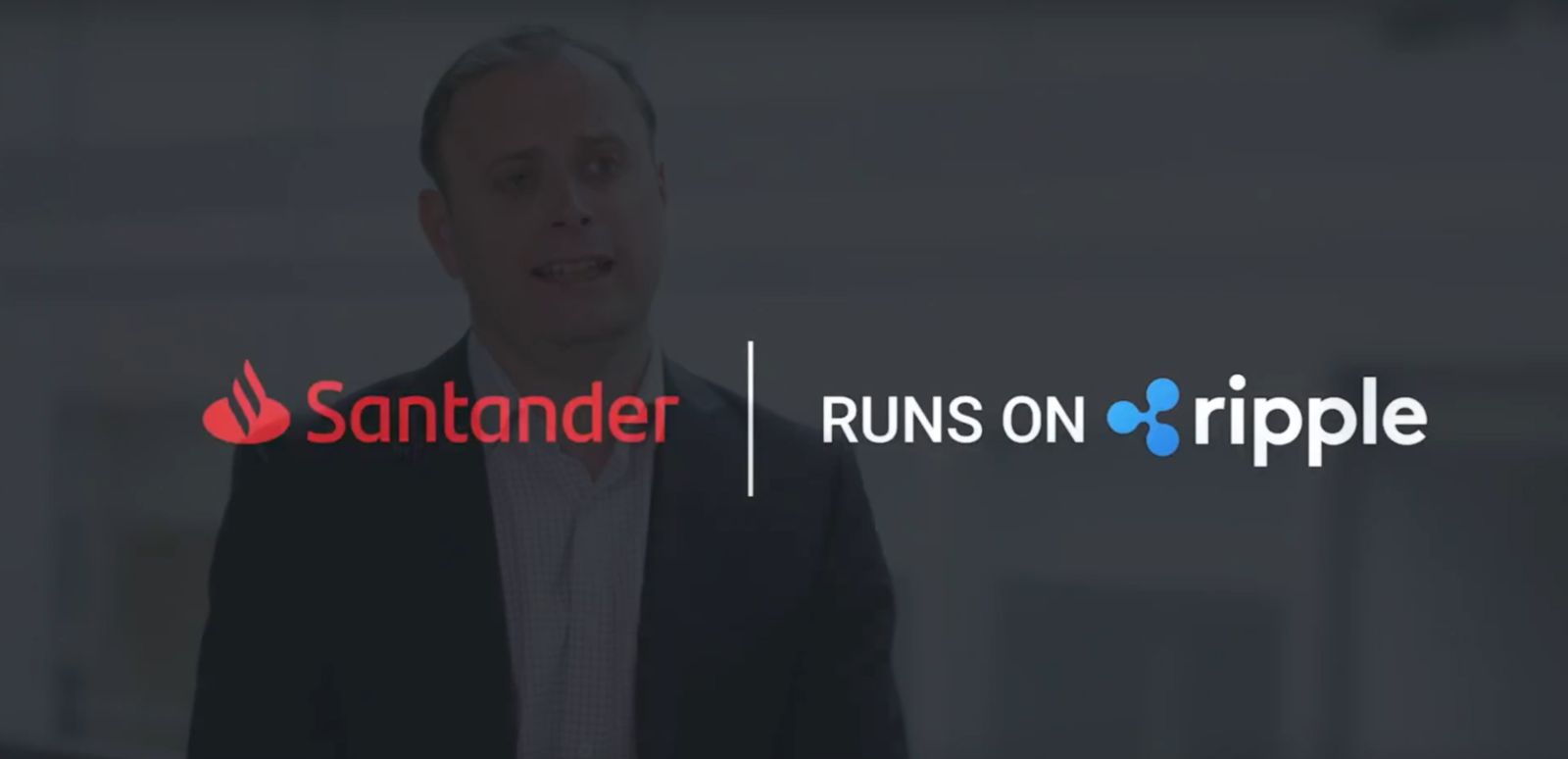
Partnerships with major banks like Santander catalyzed network participation from numerous small and medium-sized financial institutions within their business ecosystems. (Source: Ripple News)
The UK's Standard Chartered made a strategic investment in Ripple in September 2016, securing observer status on Ripple's board. Standard Chartered subsequently implemented Ripple's technology focusing on the Asian market, beginning with the Singapore-India remittance corridor in 2018 and collaborating with Mitsubishi to conduct pilot tests for international remittances between Japan, Thailand, and Singapore via RippleNet.
In the Middle East, Kuwait's largest Islamic bank, Kuwait Finance House (KFH), implemented Ripple's technology for remittance services to Saudi Arabia in 2019 and expanded to the Turkey corridor in 2021. KFH particularly noted high demand for remittances from foreign workers and announced that ODL adoption significantly reduced processing times.
A notable case in the Middle East is the collaboration with Dubai's major bank, Mashreq Bank. Mashreq adopted Ripple's ODL in early 2024, achieving significant results especially in the Pakistan-UAE remittance corridor. The UAE is the world's second-largest remittance market with annual transactions of $140 billion. Mashreq Bank processed over 500,000 transactions in the first three months after implementing ODL.
In South America, Brazil's Banco Rendimento began international remittance services through RippleNet in December 2020. It achieved particularly strong results for remittances to the US and Europe, with processing times reduced by over 90% compared to traditional methods. Banco Rendimento, one of Brazil's major foreign exchange banks, processes approximately $3 billion in international remittances annually.
The most noteworthy collaboration case in South America is with Brazil's digital bank Nubank. With over 70 million customers, Nubank—the world's largest digital bank—adopted Ripple's technology in July 2023. Offering remittance services to Argentina, Colombia, and Mexico, it processed over 1 million transactions within six months. Notably, it achieved a 78% reduction in fees compared to traditional methods for Brazil-Argentina remittances.
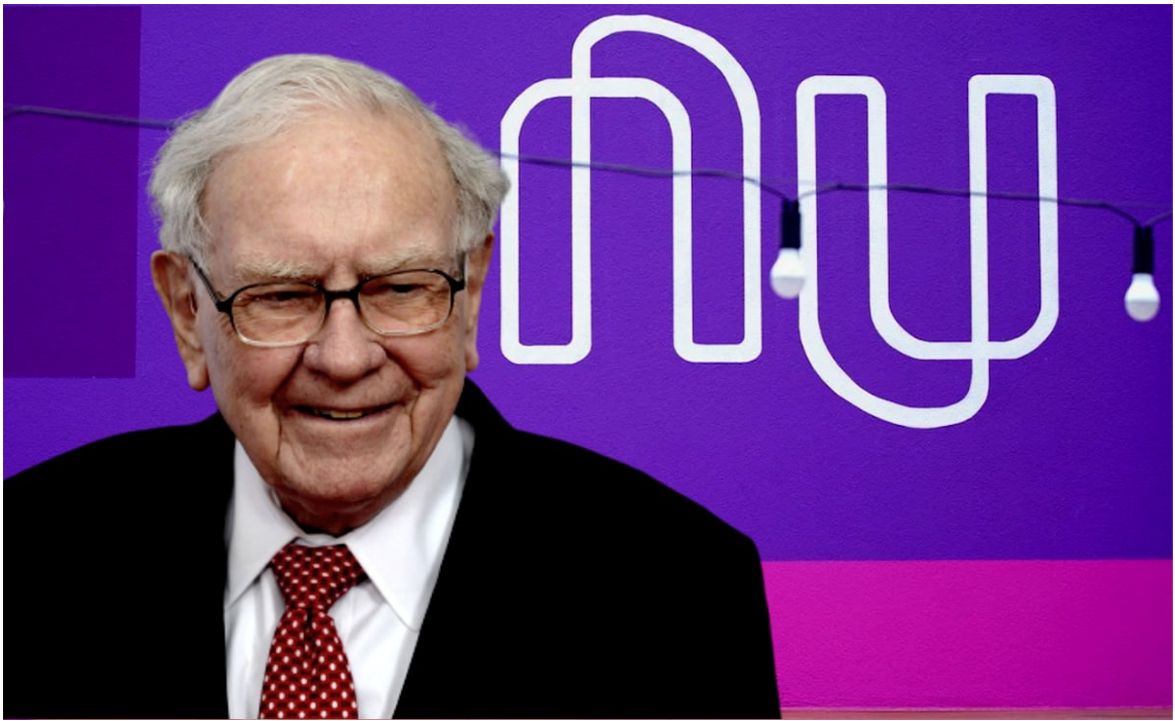
Digital bank Nubank, a RippleNet member, is famous for Warren Buffett's $500 million investment. Nubank went public on the NYSE in 2021. (Source: Forbes)
In Africa, major Nigerian banks have collaborated with Ripple. First Bank of Nigeria has utilized Ripple's technology for remittance services to the UK and UAE since 2021, while Nigeria's largest bank, Access Bank, adopted Ripple's ODL in April 2023. Access Bank launched ODL services in remittance corridors with the UK, UAE, and South Africa, reducing fees by 65% compared to traditional methods. As Africa's largest economy, Nigeria is also Africa's largest remittance market, with annual overseas remittances of approximately $24 billion.
South Africa's Standard Bank is leading remittance innovation across the African continent. With branches in 20 African countries, Standard Bank implemented Ripple's technology in late 2023 to expand services to countries with previously limited remittance services, such as Zimbabwe, Zambia, and Tanzania.
Ripple's partnerships extended beyond regional commercial banks. Particularly in the early stages, collaborations and tests conducted with various specialized remittance companies worldwide contributed to Ripple's technological development and ecosystem growth.
The global remittance company MoneyGram formed a strategic partnership with Ripple in June 2019 and implemented ODL services. It actively utilized ODL especially in the US-Mexico remittance corridor but operated this service only until July 2021 due to the SEC's lawsuit against Ripple. Ripple invested $50 million to support MoneyGram's ODL adoption, marking the first major case of a traditional remittance company adopting blockchain technology.

The partnership with global remittance leader MoneyGram represented an excellent opportunity for Ripple, but SEC's anti-cryptocurrency regulations and lawsuit forced them to postpone further collaboration. (Source: MoneyGram)
Meanwhile, Western Union tested Ripple's technology starting in 2015. In 2016, it researched the potential use of distributed ledger technology for remittances with Ripple, particularly conducting a pilot program between the US and Mexico. Although this didn't lead to full-scale adoption, it was an important case where Western Union—a symbol of traditional remittance methods—examined blockchain technology.
American Express began collaborating with Ripple in 2017. It particularly tested Ripple's technology on the Amex FX International Payments (FXIP) platform and conducted a business-to-business (B2B) remittance pilot program between the US and UK with Santander UK. American Express was one of Ripple's early major financial institution partnerships, creating significant industry buzz at the time.
UAE Exchange, one of Ripple's early partners, implemented RippleNet from early 2018 and RippleNet Cloud from 2022. Finablr, UAE Exchange's parent company, is a global remittance company processing over $100 billion annually. It focused on testing Ripple's technology in the Asian remittance market, particularly launching a UAE-Thailand remittance service in collaboration with Thailand's SCB—an early case of blockchain-based remittance between the Middle East and Asia.
FlashFX, a company specializing in business-to-business payments, was among the first companies to adopt Ripple's technology in Australia. Since 2016, it has provided business remittance services between Australia and Asia through RippleNet, achieving particular success in international trade payments for small and medium enterprises.
Fintech company adoption also increased. The UK fintech company Revolut implemented Ripple's technology for global remittance services from May 2023. With 25 million customers, Revolut achieved success particularly in UK-EU remittances, utilizing Ripple's technology to efficiently process transactions between the two regions, which had become more complex after Brexit.
Small business-specialized fintech companies also adopted Ripple's technology. Singapore's Aspex began utilizing ODL for trade finance services for Southeast Asian small and medium enterprises from August 2023. Its service was particularly successful for textile exporters in Vietnam, Indonesia, and Thailand, significantly reducing foreign exchange risk by enabling real-time receipt of export payments in local currency.
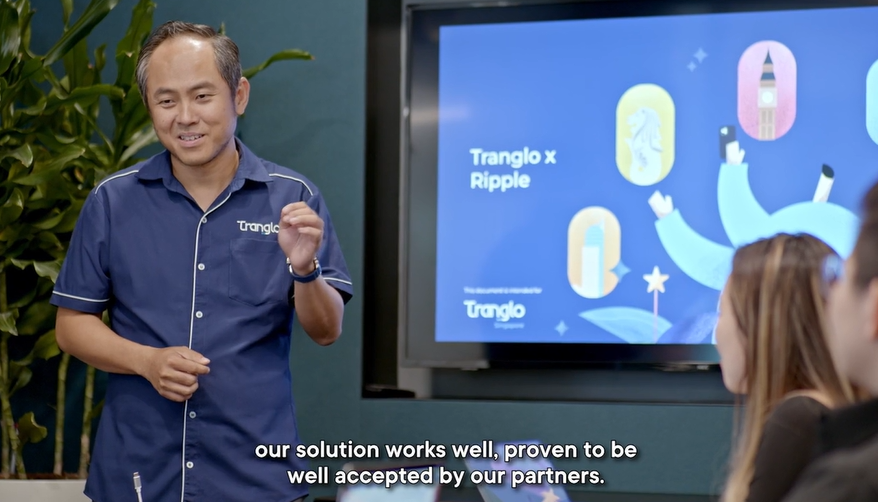
Tranglo, a Malaysian international remittance company, saw a 17-fold growth in remittance amounts through ODL. Ripple maintains partnerships with numerous regional niche remittance companies like Tranglo. (Source: Ripple)
Asset management firms have also formed partnerships recognizing Ripple technology's potential. Germany's DWS (Deutsche Bank Asset Management) implemented ODL for international fund transaction settlements from November 2023. It saw particular benefits in ETF operations listed in Asian markets, enabling real-time arbitrage in Hong Kong, Singapore, and Japanese markets. DWS announced it could reduce annual operating costs by approximately $30 million through this implementation.
This continuous influx of various financial institutions into the Ripple ecosystem is creating a powerful network effect. Particularly, the balanced participation of major commercial banks from different regions, along with remittance service providers, fintech companies, and asset managers across the global financial ecosystem, is creating a global network effect, rapidly drawing in more financial institutions.
Among these success stories, the most notable case is the collaboration with Japan's SBI Group. The SBI case exemplifies how a financial institution can comprehensively adopt and utilize blockchain technology.
The collaboration between SBI Group and Ripple has presented a new model for partnerships between financial institutions and blockchain companies. In May 2016, the two companies established a joint venture called SBI Ripple Asia, launching a long-term strategic partnership beyond simple technology adoption. Subsequently, SBI Group increased its investment and currently holds approximately 8% of Ripple Labs' shares, amounting to about 1.6 trillion yen (approximately 14.7 trillion won). This investment exceeds SBI's market capitalization of 1.2 trillion yen, demonstrating SBI's strong trust and expectations for Ripple.
SBI Ripple Asia provides international remittance services using Ripple's blockchain technology in the Asian region, including Japan and Korea. SBI Ripple Asia enables financial institutions and remittance service providers to connect directly through a single API via RippleNet, which utilizes Ripple's distributed ledger technology (DLT), allowing immediate, trustworthy remittances in more than 40 currencies across over 70 countries.
The collaboration between SBI and Ripple has expanded incrementally. Initially focusing on innovating cross-border remittance services, over time they broadened their scope to transform the entire Japanese financial system. In 2018, SBI Group launched the Money Tap application in collaboration with major Japanese banks, utilizing Ripple technology to build a real-time interbank remittance network. This marked a significant turning point allowing the Japanese financial system to move away from slow SWIFT-based settlement structures toward fast and efficient remittances. Money Tap is currently adopted by numerous major Japanese banks and is likely to be linked with the Bank of Japan's digital currency (CBDC) research project.
Furthermore, SBI Group began implementing Ripple's technology across financial services beyond payments and remittances. From 2021, SBI Securities conducted tests for digital securities issuance and tokenized asset trading using the XRP Ledger, pursuing blockchain-based financial product innovation. In 2022, it continued experimental projects to enhance international securities settlement system efficiency through XRP-based liquidity provision, working to shorten the complex securities settlement process.
Recently, SBI Group has also been collaborating on stablecoin development utilizing Ripple's XRP Ledger (XRPL). Ripple has launched the dollar-pegged stablecoin RLUSD and is also considering the possibility of launching a yen-pegged stablecoin. This is expected to play a leading role in promoting digital asset utilization in Japan and accelerating financial innovation.
SBI Group's Chairman Yoshitaka Kitao has predicted that 80% of Japanese financial institutions will adopt Ripple's technology by 2025, sharing Ripple team's press release regarding the next phase of Ripple's payment solutions and the outlook for the cryptocurrency industry over the next four years.
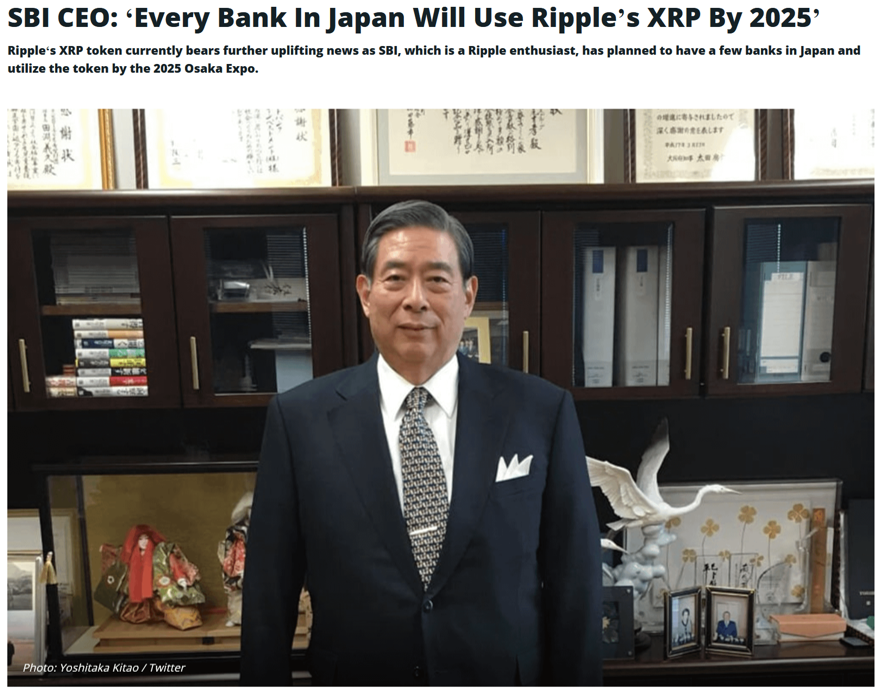
SBI Group CEO Yoshitaka Kitao has consistently advocated since 2022 that the Japanese financial industry will adopt Ripple. (Source: Binance.com)
This SBI-Ripple collaboration goes beyond a simple corporate partnership. It holds significant meaning as one of Asia's largest financial groups comprehensively adopts blockchain technology to innovate the financial system. It's particularly noteworthy that such innovation is occurring in Japan's conservative financial market.
Central banks responsible for entire national financial systems realistically must take a very conservative attitude toward new technologies. However, as they sense the gradual approach of the CBDC era, central banks have begun testing blockchain and Ripple's technology, considering ways to maintain their currencies' competitiveness.
First, the Bank of England announced in July 2019 that it would experimentally test Ripple's technology. As part of a project to modernize its Real-Time Gross Settlement (RTGS) system, it focused particularly on improving cross-border payment systems. According to the first test results announced in 2020, using Ripple's technology reduced processing costs by 40% compared to existing systems and shortened processing time to real-time.
The Monetary Authority of Singapore (MAS) made an even bolder attempt. It implemented Ripple's technology in various phases of "Project Ubin," which began in 2016, to test cross-border payment systems. In particular, through collaboration with the Bank of Thailand, it established a real-time exchange and settlement system for the Singapore dollar and Thai baht, exploring the possibility of expanding the payment network with major ASEAN countries like Malaysia and Indonesia. MAS announced through successful project results that blockchain-based payments could be utilized across the banking and fintech industries.

Following Project Ubin, Ripple has expanded its influence throughout ASEAN, including participating as a key technology partner in MAS's CBDC research initiatives. (Source: MAS)
The Saudi Central Bank (SAMA) launched a project with Ripple in February 2022 to improve cross-border payment systems in the Middle East region. Particularly through the joint project "Aber" with the UAE, it collaborated with the UAE Central Bank to build a real-time processing system for financial transactions between the two countries. As of 2024, this system processes an average of $5 billion in transactions monthly.
The Hong Kong Monetary Authority (HKMA) took an even more comprehensive approach. It adopted Ripple's technology in "Project mBridge," launched in July 2022—a cross-border payment platform connecting Hong Kong, Thailand, UAE, and mainland China. With more than 20 commercial banks participating, this project processed over $16 million in actual transactions during a four-month pilot period.
The Central Bank of Brazil (BCB) began revamping its international payment system using Ripple's technology in March 2023. Brazil's instant payment system, PIX, had already achieved great success domestically, and BCB reviewed Ripple's technology for its international expansion. It particularly focused on building real-time payment systems with neighboring countries like Argentina and Uruguay.
The Bank of Japan (BOJ) started a project with Ripple in May 2023 to improve the international securities settlement system. Notably, it piloted Ripple's technology in Japan's government bond settlement system. After six months of testing, BOJ announced it could shorten the settlement cycle from T+2 to T+0, significantly reducing settlement risk and costs.
The Bank of Canada tested Ripple's technology in the securities trading field. From September 2023, it adopted Ripple's technology in stage 6 of "Project Jasper," focusing on cross-border securities trade settlement. In this project, conducted jointly with the Bank of England, it demonstrated the possibility of real-time settlement for government bond trading between the two countries.
This adoption of Ripple's technology by central banks carries profound significance. Given that central banks are not merely financial institutions but the highest authorities managing and supervising an entire country's financial system, their technology adoption signifies that the foundation of finance itself is changing.
Particularly noteworthy is how central banks' approaches are evolving. Initially, individual central banks examined Ripple's technology independently, but recently, multiple central banks are increasingly conducting joint projects. For example, a joint project among four Nordic countries (Sweden, Norway, Denmark, and Finland) launched in January 2024 aims for regional financial integration.
In line with this trend, Ripple has also expanded partnerships with international financial organizations that promote cooperation between central banks. Ripple formed a partnership with the Digital Euro Association (DEA) in 2022 to collaborate on developing the digital euro and CBDCs. The DEA is a think tank promoting digital currency development in Europe, working closely with the European Central Bank (ECB) to lead research and discussions on the digital euro.
Additionally, in August 2023, Ripple became an official member of the Bank for International Settlements (BIS) "Task Force on Cross-Border Payment Interoperability and Extension." This task force aims to foster cooperation between public and private sectors to improve cross-border payment efficiency and interoperability, with Ripple participating alongside Mastercard and SWIFT.
One of the biggest challenges facing the global financial system today is "fragmentation." Different countries use different technical standards for their payment systems, making cross-border financial transactions inefficient and costly. This is precisely why central banks are paying attention to Ripple's technology. Ripple has already demonstrated the possibility of solving this fragmentation problem through collaboration with various financial institutions worldwide.
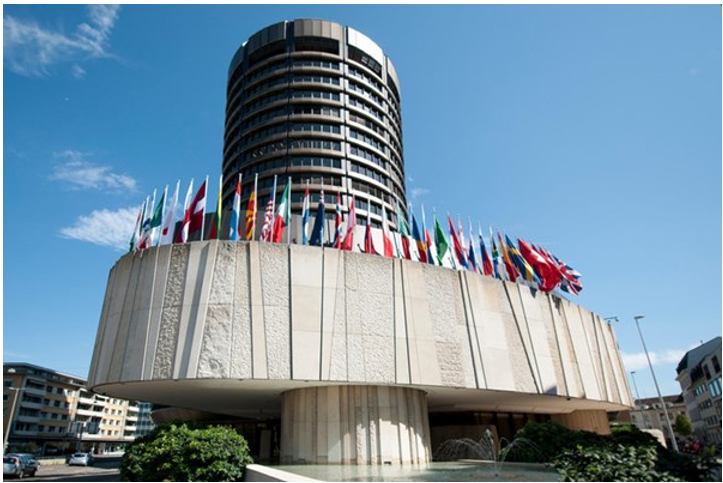
Ripple is increasing its presence in next-generation cross-border payment systems by participating in various projects of the Bank for International Settlements (BIS), which has 63 central bank members. (Source: BIS)
As we've seen, Ripple is creating a new financial ecosystem through collaboration with various financial institutions and central banks worldwide. Particularly, the full-scale technology adoption by large financial groups like SBI Group and the active consideration by major central banks like those of the UK and Singapore demonstrate that the changes Ripple is creating have already become an irreversible trend.
However, this growth process hasn't always been smooth. In the next chapter, we'll examine the SEC lawsuit—Ripple's greatest challenge—and its impact. This goes beyond a simple legal dispute, becoming an important case showing how a new financial ecosystem using blockchain and the traditional financial system are meeting a new era together through conflict and adjustment.